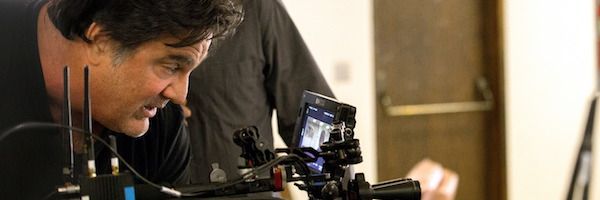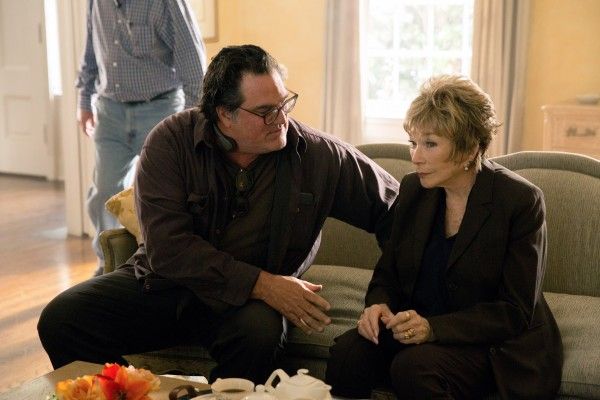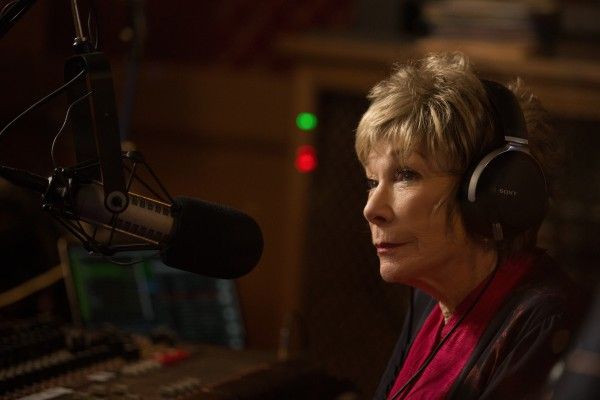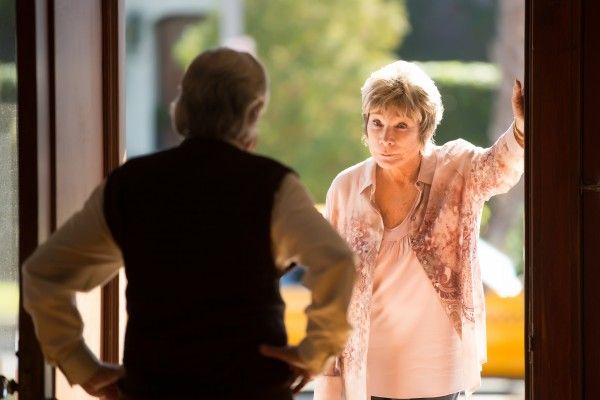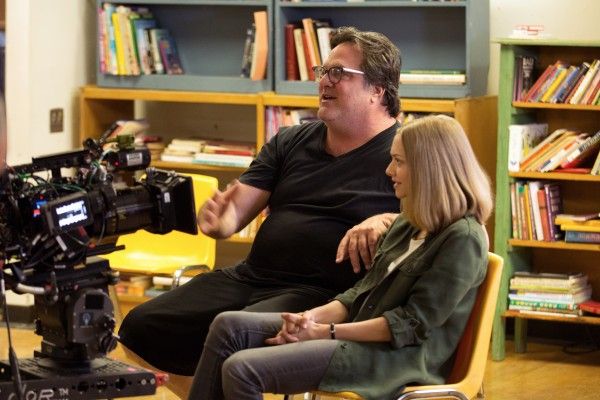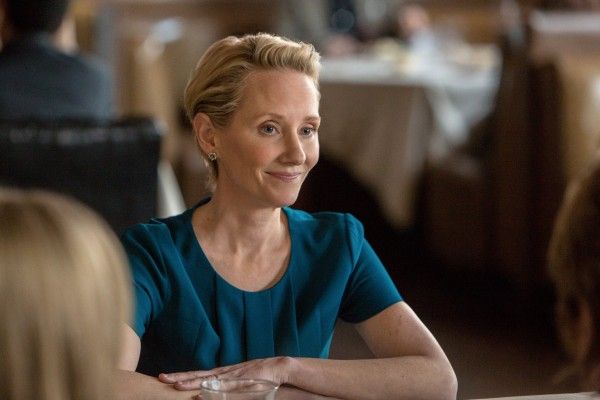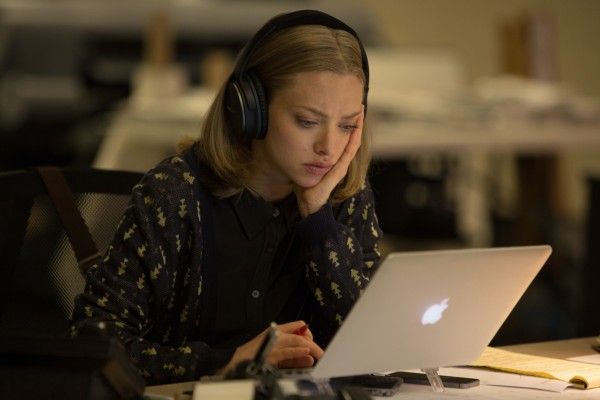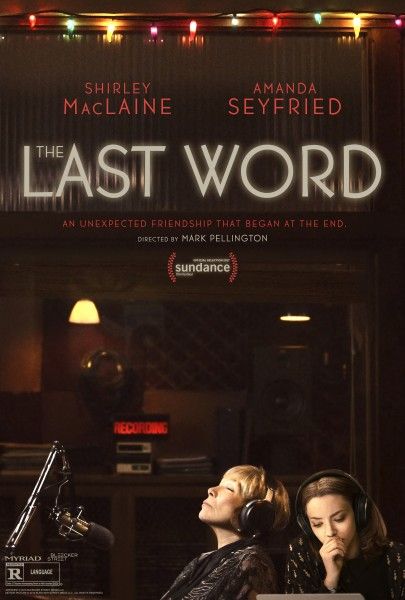Director Mark Pellington’s heartwarming dramedy, The Last Word, follows the badass adventures of the brash Harriet Lauler (Shirley MacLaine), a tightly wound, 80-something control freak determined to do it her way. Her obsessive-compulsive need to micromanage every detail of her existence inspires her to commission a talented young writer (Amanda Seyfried) to pen her obituary before it’s too late. But when the first draft fails to meet Harriet’s high expectations, she embarks on a late-life whirlwind journey of reinvention before her legacy is cemented in print. Ann’Jewel Lee Dixon, Thomas Sadoski, Anne Heche, and Philip Baker Hall also star.
In an exclusive interview with Collider, Pellington revealed how the project first emerged, what appealed to him about Stuart Ross Fink’s script, how Fink created the main character with MacLaine in mind, what convinced her to sign on to star, his directing approach with a veteran actress who is superb at her craft, the importance of getting the tone right between MacLaine and Seyfried in their first big scene together, his collaboration with music supervisor Liza Richardson on a soundtrack packed with unusual and lesser known artists, and his upcoming film Nostalgia starring Ellen Burstyn, John Hamm and Catherine Keener.
How did this project first come together for you? What was it about this story that made you say I’ve got to do this?
MARK PELLINGTON: Stuart Fink, the writer, came out of advertising. We were actually doing a commercial together. He told me he was a fledgling screenwriter, and he goes, “I have this idea.” It started with, “I was fascinated with obituaries. You know these New York Times obituaries are written before people die. It’s just like the last couple paragraphs are added.” He goes, “But I’m actually thinking about what if somebody wanted to write their own obituary before they died?” I said, “That’s a good idea.” So, he had the seed of it. Six months later, gratefully, he hired me for a commercial. But, I realized he only hired me for the commercial so we could hang out for three weeks. He had a first draft and we worked on it. I helped develop it with him for about a year until it got up to a point where it was like, wow, this could actually be something. We optioned it and did the normal process pretty quickly of trying to get it off the ground.
How hard was it to get a project like this to the place to make it all happen?
PELLINGTON: We went to Shirley first. Fink said, “I kind of wrote it for Shirley MacLaine.” We went to her. She didn’t read it. A lot of actors don’t want to read scripts to get themselves attached to trigger the financing. More and more, it’s hard because you go out to go get it triggered, and it doesn’t happen, and then it hurts your brand. It hurts your feelings. You don’t want to say, “Yeah, go ahead and use my name,” and then you can’t get it financed. A lot of people are loathe to do that. We took a couple swings at other people, and then we went back to her, and she was now more open to it, and read it and said, “I’m in.” Three weeks later, I met Amanda Seyfried and it took off from there.
What was it like directing Shirley MacLaine who brought so much to the role and is so superb at her craft?
PELLINGTON: Once we found our rhythm, that freed her up. It’s like I’m not very traditional and I’m fairly stream of consciousness. I told her I don’t really worry about marks. They’ll find the focus. I like to shoot rehearsals sometimes. At the beginning, she bristled a little bit and we had some very funny exchanges. Well now, in retrospect, they’re funny, like she would say, “Tell me exactly what to do.” Like literally beat by beat, I’m off camera telling her, “Okay, unscrew the lid. Take the pills. Take a sip of wine. Pour more.” Then she’d be like, “Okay. Tell me again.” Then, I would tell her and she’d go, “Stop telling me what to do.” So, there was a little bit of that, like finding our way. And it wasn’t about trust. I think we trusted each other from the beginning, but it was just finding the rhythm and the process. That happened pretty quickly, because she had a lot to do and she had to carry the movie, and then just seeing her incredible focus, just seeing her be. So, you’re watching and taking it, seeing her between takes, seeing how giving she was to the other actors’ scenes, and then sometimes how she would change and try to get something else. What she would do off camera on the other side would be quite different sometimes, how she decided who was going to go first. It was stuff like that where you would see her and you’d see the pro. But, it never intimidated me. I’ve worked with stars before. Once you share the text and they like it, then you’re just working together. You have to get out of… You can’t go, “Oh my God, I can’t.” I’d earned my stripes with other stars before so I wasn’t scared to work with her. She was really good. She was funny and on her form. She was like that a lot, but she had a lot of pressure. She’s carrying the movie and I was a little worried about her stamina. This wasn’t a 40-day movie that was like, “Okay, Shirley, get there are 11:00. We’ll be done by 4:00.” These were some long days.
How many days did you shoot?
PELLINGTON: It was 25 and she was probably in 21 of them. There was some stuff alone, but there was not much stuff without her. There were not many days where she didn’t work. That’s tough on an 80-year-old person. It’s physical. That’s a grind, but she did it.
How long was your first cut? Were there any deleted scenes?
PELLINGTON: It was not that long. We lost two scenes. It was like 208 and the finished movie was 143. I mean, the assembly was in good shape.
Were there any surprises during production or anything that you wish you’d known on day one?
PELLINGTON: God, you wish you could read every review for a moment and be like, “Okay,” and go back. That’s why with some of the reviews I was like, “Fuck! Really?” God, I thought I really had a fine tooth comb about it not being sentimental. A couple reviews said, “It’s so sentimental.” I’m like, “Really?” I really tried to have it be earned or have it come from within the story. But again, you put any note of any minor chord, and some people will think it’s sentimental. You can’t please everybody. There’s been enough fans of it that it just counteracts a few of the best snarky things, but most people have been pretty mixed. It’s been mixed. I think people love her and some people are like, “Oh, the script is a little X, Y or Z. The script is a little simple. The script doesn’t serve her.” It’s interesting. How can she be so great if she’s in the whole movie? It’s a little bit weird, but I think that it’s a simple story. Maybe it’s in relation to a complex thing. It might be perhaps it’s a little bit of a fable or has a fantasy element. It feels like a throwback. It’s not super real. The universe of the movie is contained in that way. The old newspaper writer. It’s a little anachronistic on a certain level. I don’t know if that’s the right word. Within that universe, everything’s real, but you can’t please everybody.
Was there a scene or a situation that you found particularly challenging?
PELLINGTON: They’re all challenging. Probably when you’re dealing with the two main characters, the first time they meet is a long scene. It’s a six-page scene which is in the newspaper office and where the force of antagonism is, where they’re laying out who they are for the rest of the movie. Getting that tone right is probably the biggest thing because you’re putting down the first big piece of the jigsaw puzzle. You might see the movie in your head, but you have to anchor that first piece. Each day it becomes the puzzle filling in and it’s great. It becomes different than what you imagined. By the end, sometime it’s easier because the movie is telling you what it is. Sometimes it’s that first one. We shot a lot of the movie in sequence which was good – that helps a lot – but not the whole thing in sequence. Certain things that were a little bit out of sequence were good because you had to take some risks and say, “Alright this is where I’m going to be.” Each actor is different. Some people have it plotted out. I remember I acted in Jerry Maguire with Tom Cruise. Luke Wilson told me more about this. Literally, every beat, every line, he would have this numerical graph charting his own life history so he knew what he was drawing on. He was super analytical. I find everybody’s process very, very different.
How would you describe your directing style?
PELLINGTON: The more I do it, the more trusting I am of the actors that I cast. It’s fairly musical. I like to be able to feel like I know that I can tell the story visually, like they don’t have to say a word, and I can kind of feel what’s going on with the space and the visualization of it. If I can get the story without any words, that’s what I aim for – spatially, design-wise, and emotionally.
Did you have a friends and family screening for this film? What was their reaction?
PELLINGTON: Most of the crew either saw it at Sundance or at the premiere in Los Angeles the other night. So, between the two of them, we made sure that they got to see it in either place. They liked it. They all enjoyed working on it. It was a really good experience for them. With these kind of movies, it wasn’t such a labor of love that people were doing it for peanuts. Some people cut their rate, but for others, like the DP and the costume designer, it was a step up for them in terms of where they had been. The actors took a little bit of a haircut. The same with production design. People work in that range because they like the material and they like the filmmaker.
Music is so important in this movie. Harriet is a big music fan who becomes a DJ and plays songs ranging from The Regrettes, Blood, Witch, Amnesty and Lady Lamb to The Kinks. Can you talk about your collaboration with Liza Richardson?
PELLINGTON: Liza Richardson is the music supervisor, and we have worked together since 1996 when she was provided songs and cues for a poetry film that I did called United States of Poetry. At the time, she was mixing ambient music with spoken word. I’d heard her DJ shows and she was really interesting. Then, she’s done four films for me. Sometimes it’s just atmospheric stuff for The Mothman Prophecies or songs for Henry Poole Is Here or tons of songs for I Melt with You. She’s just the person I go to. Sometimes she’ll give me inspirational stuff. Even if the movie doesn’t go, if I think I’m going to make a movie, she’ll read the script. We get together. She helps me pick the composer. She’ll say, “Oh maybe this would be good.” She’s my music supervisor. She’s got eclectic taste. She never turns her head. I’d say, “Liza, you don’t have to do this if you don’t want to because we only have this much money to get this many songs.” She’d go, “That’s great. So, we only now can use obscure songs which is great.” Rather than somebody coming to her and saying, “I want to use The Supremes for this thing.” There are other music supervisors that do that. For her, as a lover of music and a champion of little independent, obscure labels, she loves to get that stuff in movies. She’s super cool and just has great taste. She’s got a good ear.
What are you working on next that you’re excited for audiences to know about?
PELLINGTON: I just did this film with Ellen Burstyn and John Hamm that I’m editing now called Nostalgia that’s very verbal and very long, like eight, nine-page scenes. It’s really simple. I love it! It was on the page and I was just letting them, watching them do it. And with Ellen Burstyn, boy, that was a master class. That was very different than Shirley. Very different character. That was really serious theater, so much work, and she was just like “mmmm” in a heartbreaking role, really. I’m super excited for the world to see that.
I’ve heard it’s a film about people who are connected through loss. What can you tell me about the story?
PELLINGTON: It’s about objects and what we hold on to. It’s about your closet and why you can’t throw stuff away. Do you have photos of your parents? Where do you keep your photos? Do you have siblings? What did your siblings do when your parents got old? Are your parents alive? What do adult children do when the parents move on and they have to come to terms with where they grew up and who they are. It’s all sorts of things. It’s like five stories but they’re not intercut. They unfold like an album and it’s really interesting.
When will it come out?
PELLINGTON: I don’t know yet. We’re trying to get it into Cannes, and if not, I’d say it will be in the fall. It depends what Bleeker thinks. It’s definitely in that Independent Spirit Award kind of vein. There are some performances that could get Ellen Burstyn, John Hamm and Catherine Keener [nominations]. They give that worth of performance. That’s all I can say. It’s that type of movie. It would be a fall release.
The Last Word is now in theaters.

